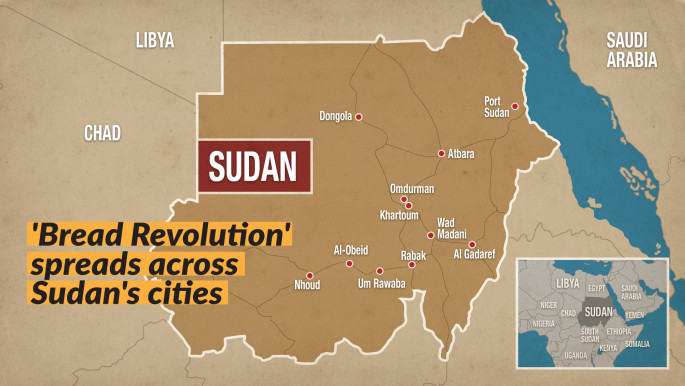Sudanese army topples Omar al-Bashir after 30 years
In an ominous repeat of the chain of events in neighbouring Egypt following the 2011 January Revolution, General Awad Mohammed Ibn Auf appeared on state TV, in military fatigues, following an earlier announcement of an “important statement” coming from the army on Thursday.
Ibn Auf says after the two years, “free and fair elections” will take place.
He says a state of emergency has been imposed for the next three months and that the military has also suspended the constitution, closed borders and the country’s airspace.
A transitional military council will lead the country for two years,
Auf also said the government and the presidency have been dissolved, and imposed a night curfew.
But Sudanese protest organisers say they won’t back a military coup that has forced longtime President Omar al-Bashir to step down and want a civilian transitional government in place after his removal.
The organisers say they are now in discussions with the military’s leadership about forming a transitional government. This comes as people are celebrating in the streets of Khartoum on Thursday following reports of al-Bashir’s ouster.
Sarah Abdel-Jaleel, a spokeswoman for the Sudanese Professionals Association, told The Associated Press they will not back a military coup and insist on an “unconditional stepping down of al-Bashir and his regime.”
She said there might be a military council to back the transitional government.
Sudanese activists behind months-long protests against al-Bashir said hundreds who were detained over the demonstrations have already been freed.
This was confirmed by Sudan’s state security agency later, which said authorities are releasing all political detainees.
Thursday’s brief statement by the National Security and Intelligence service did not indicate when the release would take place.






 Follow the Middle East's top stories in English at The New Arab on Google News
Follow the Middle East's top stories in English at The New Arab on Google News
![Netanyahu furiously denounced the ICC [Getty]](/sites/default/files/styles/image_330x185/public/2024-11/GettyImages-2169352575.jpg?h=199d8c1f&itok=-vRiruf5)
![Both Hamas and the Palestinian Authority welcomed the ICC arrest warrants [Getty]](/sites/default/files/styles/image_330x185/public/2024-11/GettyImages-2178351173.jpg?h=199d8c1f&itok=TV858iVg)
